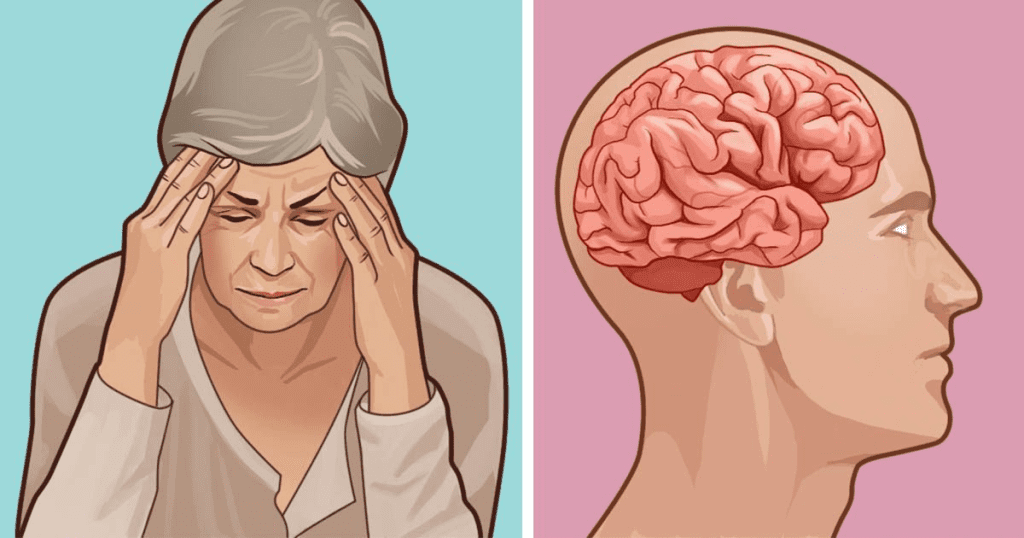Alzheimer’s disease is a progressive brain disorder that affects memory, thinking, and behavior. It’s the most common form of dementia, impacting millions of people worldwide, predominantly those aged 65 and older. However, it’s important to note that Alzheimer’s is not a normal part of aging—it’s a distinct disease that can even develop in individuals in their 40s and 50s.

In this article, we’ll cover the basics of Alzheimer’s disease, including its causes, symptoms, and the importance of early detection. By understanding the signs and stages of Alzheimer’s, you can take proactive steps if you or a loved one may be showing symptoms.
What Causes Alzheimer’s Disease?
The exact causes of Alzheimer’s are still not fully understood. However, researchers have identified several factors that appear to contribute to the onset and progression of the disease.
Brain Changes and Cell Damage
According to the National Institute on Aging, Alzheimer’s-related changes begin in the brain long before symptoms appear. Abnormal protein buildups, such as beta-amyloid plaques and tau tangles, gradually accumulate, disrupting the communication between brain cells and eventually killing them. Over time, this causes brain tissue to shrink, severely impairing functions associated with memory, language, and reasoning.
Risk Factors for Alzheimer’s
While anyone can develop Alzheimer’s, certain factors can increase the risk:
- Age: Most people with Alzheimer’s are 65 or older.
- Family History: A family history of Alzheimer’s can increase your risk.
- Genetics: Specific genes, such as the APOE-e4 gene, are linked to a higher risk of developing the disease.
Recognizing the Warning Signs of Alzheimer’s
Alzheimer’s causes a gradual decline in memory, cognitive abilities, and reasoning skills. The Alzheimer’s Association outlines 10 warning signs and symptoms to help identify the disease in its early stages. While individuals may experience these symptoms differently, knowing the signs can help you recognize potential red flags.
1. Memory Loss That Disrupts Daily Life
Memory loss is often one of the first noticeable signs of Alzheimer’s. This can involve forgetting recent information, important dates, or repeatedly asking the same questions.
2. Difficulty with Planning or Problem-Solving
Tasks that once seemed simple, like following a recipe or keeping track of bills, become challenging. People with Alzheimer’s may struggle to concentrate and take longer to complete tasks.
3. Trouble Performing Familiar Tasks
Activities that were once routine, such as driving to a familiar location or remembering the rules of a favorite game, may become difficult or even impossible for someone with Alzheimer’s.
4. Confusion with Time or Place
Alzheimer’s can cause people to lose track of time, seasons, and even where they are. They may become disoriented, unsure of how they arrived somewhere, or forget the date.
5. Difficulty Understanding Visual Images and Spatial Relationships
Problems with vision and spatial awareness can make reading, judging distance, or even recognizing familiar faces challenging for those with Alzheimer’s.
6. New Problems with Words in Speaking or Writing
Alzheimer’s often affects language skills, making it difficult to follow or join in on conversations. Individuals may frequently repeat themselves or struggle to find the right word.
7. Misplacing Things and Losing the Ability to Retrace Steps
People with Alzheimer’s may place items in unusual spots and be unable to remember where they left them. This can lead to accusations of theft or growing frustration.

8. Poor Judgment
A decline in decision-making skills is common, resulting in poor choices with finances, personal grooming, or social interactions. For example, individuals may give away large sums of money to telemarketers or neglect self-care.
9. Withdrawal from Work or Social Activities
As Alzheimer’s progresses, individuals may withdraw from hobbies, social activities, or work. They may avoid social situations because they struggle to follow conversations or feel embarrassed by their symptoms.
10. Changes in Mood and Personality
Alzheimer’s can bring about significant shifts in mood and behavior. Individuals may become anxious, confused, suspicious, or even depressed. Changes in personality are common, leading to frustration, irritability, or outbursts.
What to Do If You Notice Symptoms of Alzheimer’s
If you recognize these warning signs in yourself or a loved one, it’s crucial to seek medical advice as soon as possible. An early diagnosis allows for a better understanding of the condition and offers the best chance to plan for the future. The Alzheimer’s Association provides a checklist that you can bring to a doctor’s appointment to ensure all symptoms are thoroughly discussed.
The Importance of Early Detection in Alzheimer’s Disease
While there is currently no cure for Alzheimer’s, early detection offers several key benefits. An early diagnosis can provide access to treatments that may slow the progression of symptoms and improve quality of life.
Benefits of an Early Diagnosis
- Treatment Opportunities: Early-stage treatments, though not curative, may slow down symptom progression and help manage the disease.
- Future Planning: An early diagnosis provides time to discuss and plan for future care, living arrangements, and financial matters.
- Participation in Clinical Trials: Early detection opens the door to clinical trials, allowing patients to contribute to Alzheimer’s research and access potential new treatments.
- Access to Support Services: Families can connect with resources such as counseling, support groups, and caregiving assistance early on, easing the caregiving journey.
Available Tools and Resources for Alzheimer’s Patients and Families

Numerous resources are available for those affected by Alzheimer’s. The Alzheimer’s Navigator tool, for instance, can help identify needs and create personalized action plans. Organizations like the Alzheimer’s Association offer educational materials, support groups, and helplines for caregivers and families.
Treatment Options and Clinical Trials
Though there is no cure, treatments like cholinesterase inhibitors and memantine can help manage symptoms by improving cognitive functions and quality of life. Clinical trials are ongoing, and many patients find comfort in contributing to research that could one day lead to more effective treatments or a cure.
Conclusion: A Proactive Approach to Alzheimer’s Disease
Alzheimer’s is a challenging disease that not only affects the person diagnosed but also their loved ones. However, understanding the early signs, getting a timely diagnosis, and accessing available resources can make a significant difference. By recognizing the symptoms and seeking help early on, patients and families can take control of their future, make informed decisions, and enhance quality of life.
While there is no current cure for Alzheimer’s, every step taken—whether it’s learning about the disease, joining a support group, or participating in clinical research—helps bring hope to the millions affected. If you notice any of the warning signs discussed, don’t wait. Reach out to a healthcare professional, learn more about your options, and take action to make a difference in your journey with Alzheimer’s.


